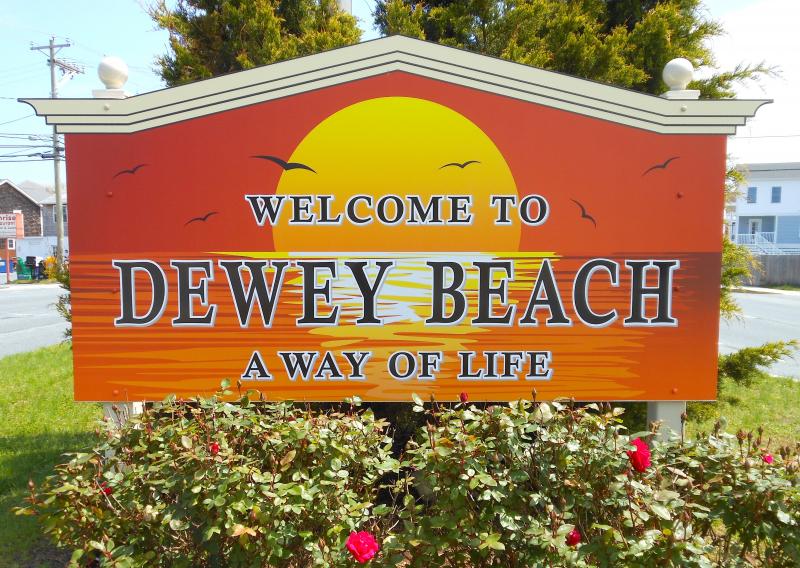Dewey leaders tackle climate change
The first meeting of the Dewey Beach Climate Change Committee saw members volunteer to research issues relating to storms and events, sea level rise, and funding opportunities, and to identify possible solutions before the next meeting, set for April.
Chair Dave Davis said about 20 people volunteered to serve on the new committee, which comprises Phil Winkler, Marty Tarr, Drew Martin, Rich Soper, Debra Phillips and Stacy Hannah.
In the Feb. 12 virtual meeting, Davis displayed a coastal risk screening tool on the Climate Central website that shows areas in the southwestern part of town that are below the annual flood level, the level that coastal floods exceed on average once per year.
Commissioner liaison Gary Persinger said “annual flood level” is used to denote the water level at the shoreline that local coastal floods exceed on average once per year; for instance, 10 floods are statistically expected to exceed this level over 10 years, although some years may have two or more incidents, and other years, none. Persinger said more areas of the town will be below the annual flood level by 2050, but being under water will likely still be a relatively rare event based on the model.
Not only is Dewey vulnerable to flooding from weather events, but also from rising groundwater that moves water in other directions, Building Official Daune Hinks said.
Commissioner liaison Gary Persinger said the town’s comprehensive plan recommended the establishment of the committee, which would interact with the town council, code review and infrastructure committees, and the planning and zoning commission on issues and possible changes to town code.
A stormwater management master plan that was approved in 2016-17 details $8 million worth of needed projects, Persinger said, advising the committee to connect with the Delaware Center for the Inland Bays as a resource and partner.
Among the committee’s responsibilities are developing a strategic comprehensive plan to address the town’s adaptation to climate change impacts, promoting understanding of flood zone designations and associated flood risks, proposing coastal adaptation goals, and considering and recommending zoning and building changes to enhance resiliency.
Town Manager Bill Zolper said he is working with a grant writer to try to secure funds for a $478,000 stormwater pipe repair and replacement project on Bayard and McKinley avenues. American Rescue Plan Act funds will be used to install new rip-rap on Read Avenue, he said.
Getting water out of the town is a big problem, Zolper said, noting that drains that run to the bay need to be evaluated, and many are packed with sand.
Member Phil Winkler said water levels need to be lowered or the land needs to be raised. The problem is the land is too low, but it’s valuable and needs to be protected, he said, so the committee needs to create objectives that prevent more flooding, gather and analyze data, implement solutions and evaluate their effectiveness.
Editor’s note: this article was revised Feb. 24 to include clarification from Commissioner Gary Persinger.























































